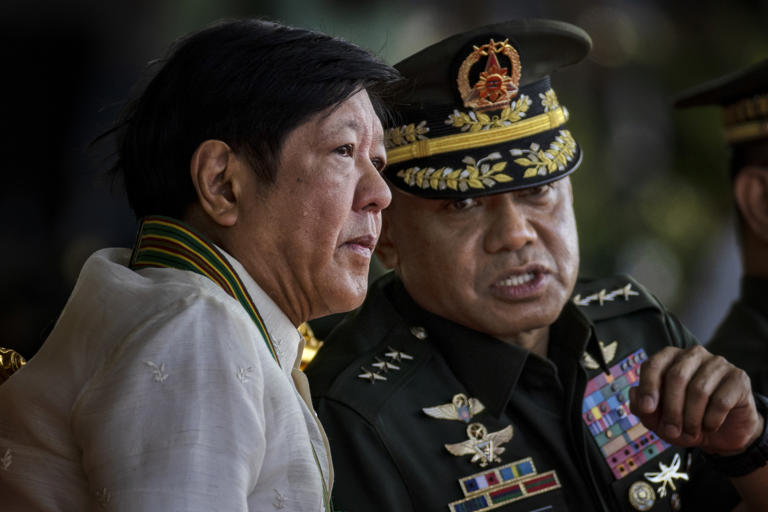Philippine President Ferdinand Marcos Jr. has taken a strong stance against recent clashes with Chinese forces in the contested waters of the South China Sea, vowing that his country will not be intimidated into silence. In a social media post on Thursday, Marcos stated that the Philippines will respond to the incidents and issued directives following meetings with defense and national security leadership.
Asserting his commitment to safeguarding Philippine sovereignty and jurisdiction, Marcos emphasized ongoing communication with allies and partners who have offered assistance in maintaining peace and stability in the Indo-Pacific region. He pledged to implement countermeasures in response to what he described as “unabating, illegal, coercive, aggressive, and dangerous attacks” by Chinese Coast Guard agents and Maritime Militia.
The recent clash occurred when a Philippine supply boat, escorted by coast guard vessels, faced an attempted blockade and water cannon attacks while navigating towards Second Thomas Shoal in the Spratly Islands. This area hosts a Philippine military outpost, symbolized by a grounded warship, which has been a point of contention with China. The confrontation resulted in damage to the Philippine vessel and injuries to crew members.
These incidents have heightened tensions in the South China Sea, where China’s expansive territorial claims intersect with the exclusive economic zones of neighboring countries, including the Philippines. The Philippines asserts that Chinese claims infringe upon its traditional fishing grounds, posing a threat to local livelihoods.
Marcos emphasized that while the Philippines seeks to avoid conflict, it will not yield to coercion or subservience. He affirmed the resilience of the Filipino people, stating that they will not be silenced or intimidated in asserting their rights and sovereignty in the face of external pressure.
The Philippines’ foreign affairs department did not provide an immediate response to a written request for comment regarding the recent clashes with Chinese forces in the South China Sea.
Meanwhile, Chinese Defense Ministry spokesperson Wu Qian addressed the issue during a monthly press briefing on Thursday. Wu stated that China is fully prepared to handle any emergency and will staunchly defend its territorial sovereignty and maritime rights and interests. He attributed the escalating tensions in the disputed waters to Manila’s “harassment and provocations” and pointed to external forces, particularly the United States, as the root cause.
Wu accused Washington of exacerbating confrontation by supporting the Philippines, invoking the bilateral treaty, and deploying military vessels to the South China Sea. He cautioned that the Philippines is heading down a dangerous path and asserted that China will not allow Manila to act recklessly.
The South China Sea dispute has garnered significant attention in the Philippines, with recent polling indicating growing concern among the populace. A majority of respondents in a December poll expressed support for using military action to assert the Philippines’ territorial rights.
The recent confrontations, including those at Second Thomas Shoal and other flashpoints, have reignited discussions around the seven-decade U.S.-Philippines Mutual Defense Treaty. During a call between Defense Secretary Lloyd Austin and his Philippines counterpart Gilberto Teodoro on Wednesday, Austin reaffirmed the treaty’s “ironclad” nature, emphasizing that it extends to the entire Pacific region, including the South China Sea, as stated by the Pentagon.
